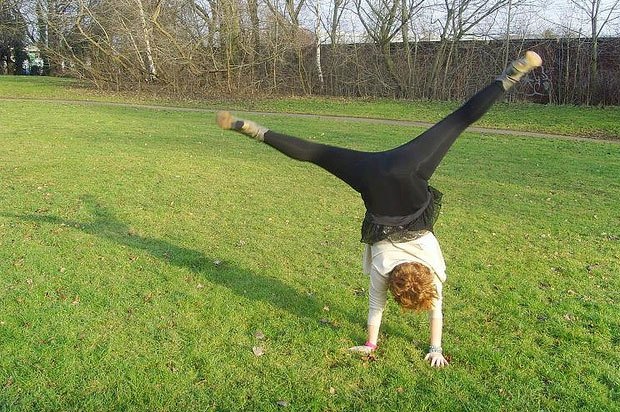Can exercise beat anxiety and depression?
So getting off the sofa is proven to be good for your body, but could it keep your mind healthy too? We investigate whether you can beat depression and anxiety through exercise.

Does jiggling about really help your brain?
There’s a growing body of evidence that suggests exercise can help combat depression, stress and anxiety. But how much exercise should you take, what type, and what does it actually do to our brains?
How does exercise help my mental health?
Sorting your head out is rarely just about changing one thing in your life, so it follows just exercise alone won’t be some kind of magic cure.
But there are some good reasons it could help. Here’s how:
- Exercise is thought to increase the levels of endorphins, serotonin, and other chemical messengers in your brain and generally put you in a better mood.
- It also increases blood flow to the brain and causes our muscles to relax, making it easier to sleep – and sleep is a key factor in dealing with life generally.
- Getting a fitter body can boost your self-confidence and make you feel better about yourself.
- We know it’s hard to drag yourself away from the revision timetable, but exercise could really help if you’re in brain-melt mode over an exam. It will clear your head and calm you down – there’s even evidence it might improve your brain’s performance.
What do scientists say about exercise, depression and anxiety?
There have been loads of studies into how and why exercise is thought to be good for depression. A review of some studies shows that there IS evidence exercise can help young people with depression, but that we still don’t really know WHY some people feel better after exercise.
“Studies strongly show exercise can help prevent depression and anxiety,” says Dr. Wilby Williamson. “Exercise is also used as a treatment. Reasons include the fact that it helps you relax and clear your head, reducing stress in the short term and so helping you develop better coping mechanisms for the long term. But it needs to be part of an overall management plan.”
All of us have unique brains and getting better could involve trying a mixture of different types of approach like talking therapy, CBT and medication. So it’s important to discuss feelings of depression and anxiety with your GP too.
Another factor is that exercise usually involves getting outside, sometimes with others – two things that have also been shown to help our brains behave. A study by the University of Essex in 2011 found that getting outside and moving about, even for a short burst of time, can improve your mood.
“Setting goals, structured activity and routine – all associated with sport – can help improve self esteem by giving you a focus and making you feel proud of yourself when it all goes right,” adds Dr. Wilby.
So how much exercise should I do?
Any type of movement is good, even just getting out for a stroll round a nearby park. But to get the true benefits of endorphins and tired muscles, you need a real work out. This means working up a sweat and getting so puffed you have trouble speaking for a few seconds. Combine this with a good warm up and warm down to avoid getting injured.
Add fresh air and being with other people you’re going to feel the benefits even more strongly. So concentrate on physical activity or sport where you’re out with someone else, like tennis, ultimate frisbee, netball, football or joining a jogging club.
There’s no clear guidance on how much exercise is best for helping depression or anxiety, but we do know that to feel any benefit you need to exercise regularly.
But I’m not a jock
Sport can seem like it’s just for ?ber-competitive confident types. When you’re feeling blue, it can be the biggest effort in the world to face an activity you’re pretty convinced you’re going to hate. So how about trying these non-jock forms of exercise?
- Cycling: You get to be outside and out of puff, but there’s an actual point to it all because you’re travelling for FREE. Bargain.
- Dancing: OK so it’s not outdoors, but going for it on the dance floor with your friends gives you an amazing work out (remember alcohol is a depressant, so if you have to be plastered to bring out those killer moves, this is the wrong ‘sport’ for you).
- Walking fast: Speed up your walk to the point where you’re getting sweaty, puffed and red in the face for about 20 minutes. Force your mates to keep up with you.
- Jogging apps: Some apps help you plan jogging routes, log your progress and share your achievements. You can run in secret, but still feel connected to a bigger group of like-minded people through your phone.
Next Steps
- Chat about this subject on our Discussion Boards.
By
Updated on 29-Sep-2015
No featured article










